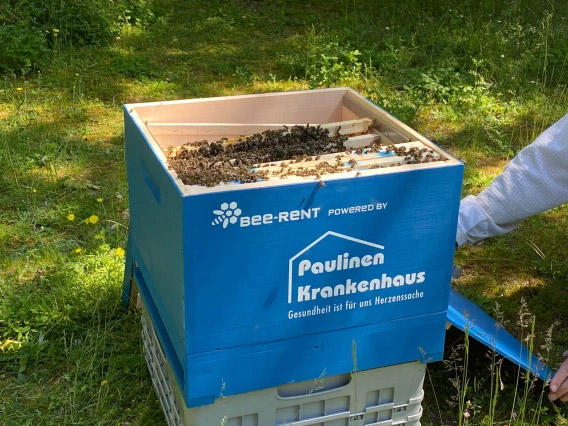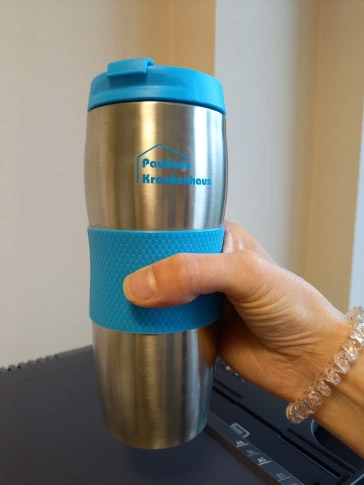Sustainability at Pauliennkrankenhaus
KLIK green

The Paulinenkrankenhaus has been involved in the climate protection project “KLIK green – Krankenhaus trifft Klimaschutz” since 2019. The aim of this project, which is funded by the Federal Ministry for the Environment, Nature Conservation and Nuclear Safety (BMU), is to reduce CO2 emissions in hospitals. KLIK green benefits from the expertise of its project partners Friends of the Earth Germany, the North Rhine-Westphalia Hospital Association and Jena University Hospital. Together with the participating hospitals, they are reducing harmful emissions and saving overheads.
The largest investment in this context has been the installation of the combined heat and power plant at the Paulinenkrankenhaus, which enables us to generate the electricity we use ourselves. The cogenerated heat is used to produce hot water and heat the hospital. The outdated gas boilers have been replaced with modern, more efficient gas installations. A large proportion of the pumps and ventilation systems are run by direct drive electric motors.
To further reduce the CO2 emissions at the Paulinenkrankenhaus, we have developed an action plan, which has already been implemented:
We have completely switched over to LED lighting fixtures.
Paulinen Service Gesellschaft is the proud possessor of an electrically powered van, with the necessary charging point on our premises.
Sustainable textile products at the Paulinenkrankenhaus

The workwear at the PKH is made of sustainable Tencel textiles manufactured by Sitex. Tencel is a biologically degradable product. No by-products which are harmful to people or the environment are produced during its manufacture, because the main component, cellulose, is obtained from well-managed forests.
In addition, no irrigation or pesticides are required for cultivating the trees required to produce the textiles (unlike cotton, which is intensive in terms of water, pesticides and labour), and this fibre is also much less toxic than other types.
The “Pauline-Bienen” project is another green contribution to environmental protection at the Paulinenkrankenhaus. 30,000 honey bees live and work in a little blue tower block. They are responsible for pollinating the flowering plants throughout the surroundings of the Paulinenkrankenhaus, and at the same time provide homemade honey.
In our cafeteria, too, we are increasingly focussing on sustainability and reducing CO2. Thus we are progressively stopping the use of plastic in the form of cups and disposable cutlery, and every employee was given a Pauline cup on St. Nicholas’ Day in 2020.
For visitors, sandwiches and takeout salads are packed in compostable, or even edible, materials.
In the offices we use ballpoint pens made from recycled paper, which also feel very pleasant to hold.
All of these actions are contributing to the Pauline becoming a climate-friendly and forward-thinking hospital which will offer the best possible climate protection across the generations.
